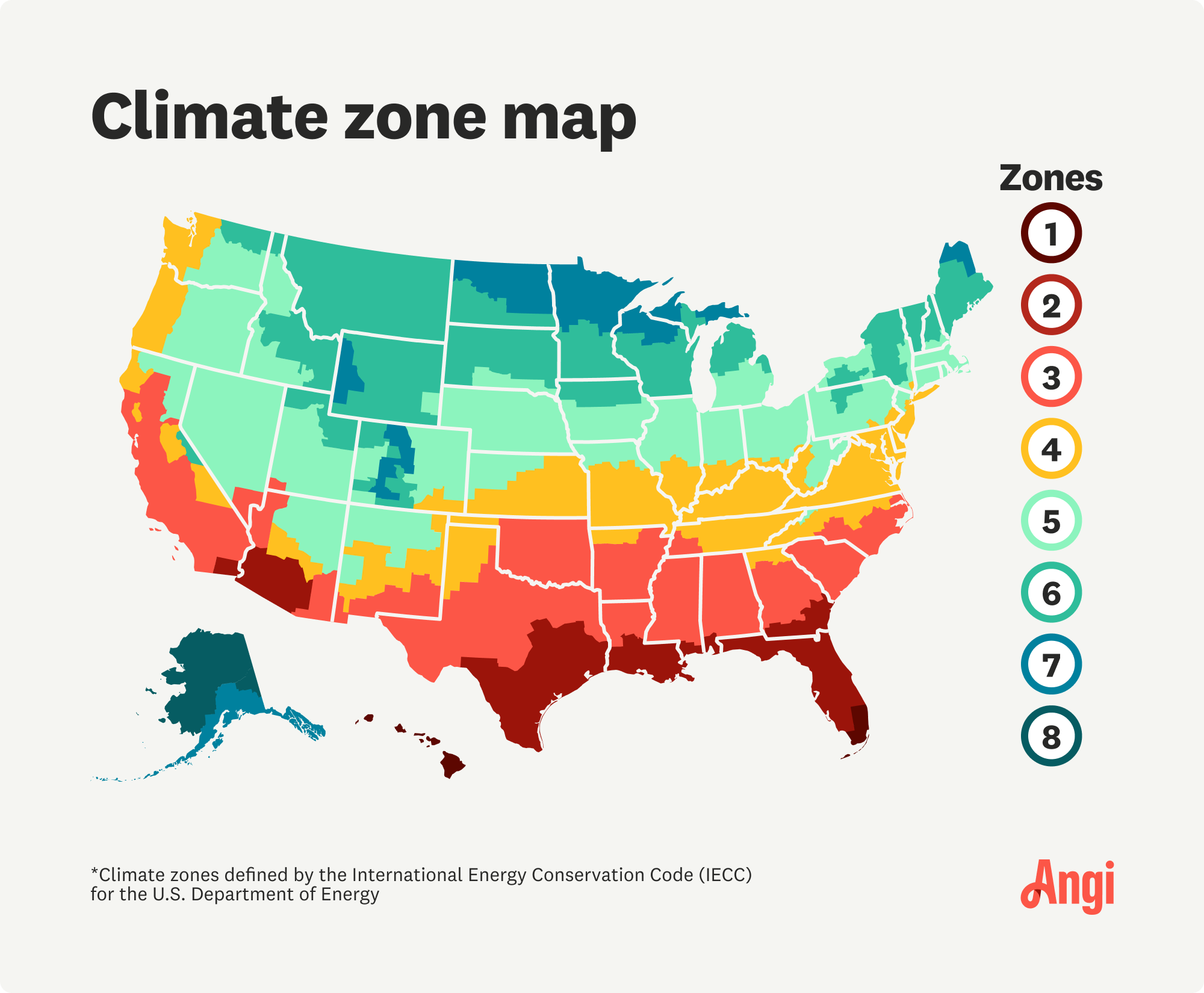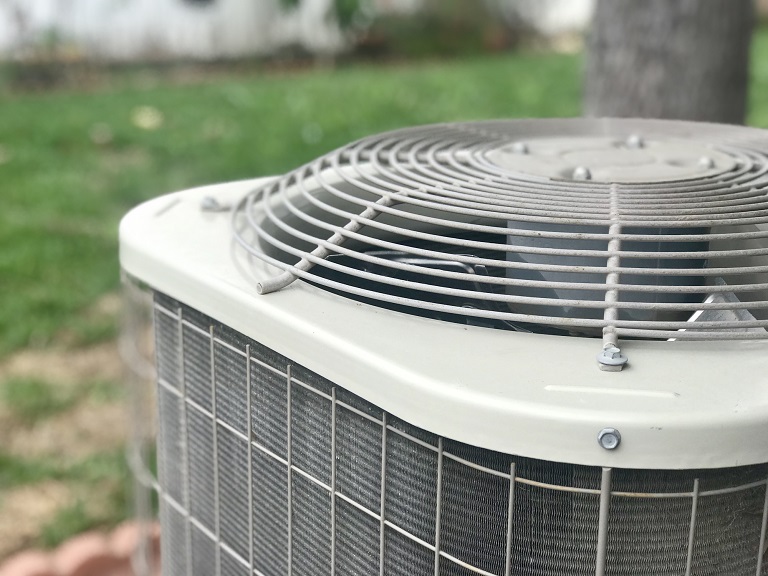
Do you know what it will cost to reroute ductwork in your home? Discover the cost factors and other considerations of this HVAC project.
Boiler installation or replacement costs in Washington, D.C., are $4,339 on average, although prices range from $2,454 to $6,723 depending on boiler type, fuel type, house size, and other factors. Reach out to a local HVAC pro for an accurate estimate.


Your property’s square footage plays an important role in your boiler replacement costs in Washington, D.C.
Bigger homes require larger boilers—which come with heftier price tags.
Electric boilers are less expensive than other types, but they’re only useful for small spaces.
Your Boston boiler replacement budget should also include the costs of professional labor and permits.
Trying to estimate your boiler replacement costs in Washington, D.C.? On average, you’ll pay $4,339 for a new boiler in our nation’s capital. However, depending on the size of your house, the type of boiler, and other factors, you could spend between $2,454 and $6,723. To help you create an accurate budget, this guide breaks down the key cost factors for replacing a boiler in Washington, D.C.
The size of your Washington, D.C., home and the specifics of your boiler have a major impact on your overall costs. Here’s how they come into play.
You can estimate the cost of your boiler by your home’s square footage and boiler capacity using the table below. However, call an HVAC pro in Washington, D.C., for the most accurate estimate.
| Home Size (in Square Feet) | Boiler Size in British Thermal Units (BTUs) | Average Unit Cost |
|---|---|---|
| 1,000 | 30,000–45,000 | $2,000–$3,200 |
| 1,500 | 45,000–68,000 | $2,500–$3,800 |
| 2,000 | 60,000–90,000 | $3,100–$4,800 |
| 2,500 | 75,000–113,000 | $3,600–$5,600 |
| 3,000 | 90,000–135,000 | $4,100–$7,000 |
The most common fuels used for boilers in Washington, D.C., are natural gas, propane, and oil. The fuel type you choose will have a major impact on both your ongoing costs and how much you pay for a new boiler.
| Fuel Type | Average Unit Cost |
|---|---|
| Oil | $1,800–$6,500 |
| Gas | $1,300–$6,500 |
| Propane | $2,000–$7,000 |
| Electric | $1,100–$5,500 |
| Wood | $5,000–$13,000 |
Oil boiler: Oil burns hotter than gas, so oil boilers provide more heat and are better in colder climates. However, oil boilers require more maintenance than gas options, so keep things like long-term maintenance costs in mind before buying.
Gas and propane boiler: Propane and natural gas are common options for heating homes. In addition to the unit price, installation costs $1,000 to $3,000 and requires new exhaust lines, drains, and fuel lines.
Electric: Electric boilers are highly efficient and don't require some of the components that gas and oil boilers need, like exhaust vents. They take a long time to heat up but are an attractive option for tiny homes in warm climates.
Wood: Large, outdoor, wood-fueled boilers are good options for rural areas that have easy access to wood.
Boilers are broken out by fuel type, but they can also vary in other ways—like their system types.
| Boiler System Type | Average Unit Cost |
|---|---|
| Standard or conventional | $1,200–$4,500 |
| Combination | $1,600–$4,500 |
| System | $2,000–$4,000 |
| High-efficiency | $2,500–$8,000 |
Standard or conventional boilers: These boilers work by quickly heating water in pipes and sending it to your taps. Standard units are one of the most popular choices for homeowners in large homes and those with floor heating systems.
Combination boilers: Combination boilers are popular because they’ll give you access to hot water quickly. However, the supply tends to be limited due to the lack of a storage tank.
System boilers: These work by keeping high-pressure hot water in a sealed cylinder, where it can be sent to multiple taps within your home simultaneously.
High-efficiency boilers: High-efficiency boilers are up to 98% efficient, which accounts for thousands of dollars in savings over the boiler's life. Standard boilers are around 80% efficient, making them ideal for cold climates.

The capacity of your boiler (in BTUs) depends on your region and climate. Warmer climates make it much easier to heat water, even for larger houses, so fewer BTUs are required. You can estimate your necessary BTUs by finding out which climate zone you live in.
Beyond the price of the boiler itself, you should also weigh the costs of labor, permits, and sales tax in Washington, D.C.
Replacing a boiler isn’t a DIY job. If you aren’t experienced with heating and cooling systems, you could damage your boiler or HVAC system, cause a gas leak, or injure yourself while trying to install your own boiler. For those reasons, you should have a licensed HVAC pro in Washington, D.C., set up your new boiler.
When hiring for HVAC projects (including boiler installation), you might also want to look for a technician who’s certified by North American Technician Excellence (NATE). This leading nonprofit program certifies the skills and knowledge of professionals in the HVAC and refrigeration (HVACR) field. It’s a voluntary certification, so if your contractor has one, you know they’re committed to ongoing education, safety, and HVAC knowledge.
To “add, replace, remodel or repair fuel-burning or unfired pressure vessel equipment such as furnaces or boilers” in Washington, D.C., you’ll need a boiler permit from the District’s Department of Buildings (DOB). Permit costs depend on the size of your boiler and your home’s square footage, but you should see the costs listed in your contractor’s quote.
The sales tax rate in Washington, D.C., is 6%, which can increase the cost of your boiler or other materials purchased in the District. For example, on a $3,500 boiler, you’d owe $210 in taxes.
During Washington, D.C.’s, frigid winters, a home heating system is a must-have, so if your boiler is on its last legs, you should consider replacing it.
However, installing a new boiler doesn’t just keep you comfortable and safe through the coldest months of the year. If you decide to sell your house, an upgraded boiler can appeal to interested buyers and increase your home’s resale value. In fact, when combined with a new cooling unit, an updated HVAC system can bump up your property’s value by 5% to 7%.
Home is the most important place on earth, which is why Angi has helped more than 150 million homeowners transform their houses into homes they adore. To help homeowners with their next project, Angi provides readers with the most accurate cost data and upholds strict editorial standards. We survey real Angi customers about their project costs to develop the pricing data you see, so you can make the best decisions for you and your home. We pair this data with research from reputable sources, including the U.S. Bureau of Labor Statistics, academic journals, market studies, and interviews with industry experts—all to ensure our prices reflect real-world projects.
Want to help us improve our cost data? Send us a recent project quote to [email protected]. Quotes and personal information will not be shared publicly.
From average costs to expert advice, get all the answers you need to get your job done.

Do you know what it will cost to reroute ductwork in your home? Discover the cost factors and other considerations of this HVAC project.

Furnace cleaning is an essential annual chore to keep your home safe. Find out common furnace cleaning costs by type and size of furnace with this guide.

AC capacitor costs can vary based on labor prices in your area and the specific type of capacitor you need. Explore all cost factors here.

Discover the average air handler replacement cost, including labor and materials, plus expert tips to help you budget and save on your HVAC upgrade.

Not sure which type of furnace humidifier is best for your home? We’ve broken down four different options, explaining how they work and their benefits.

Thinking about installing a heat pump in your home? Learn about the different types of heat pumps and the options you can choose from in this guide.